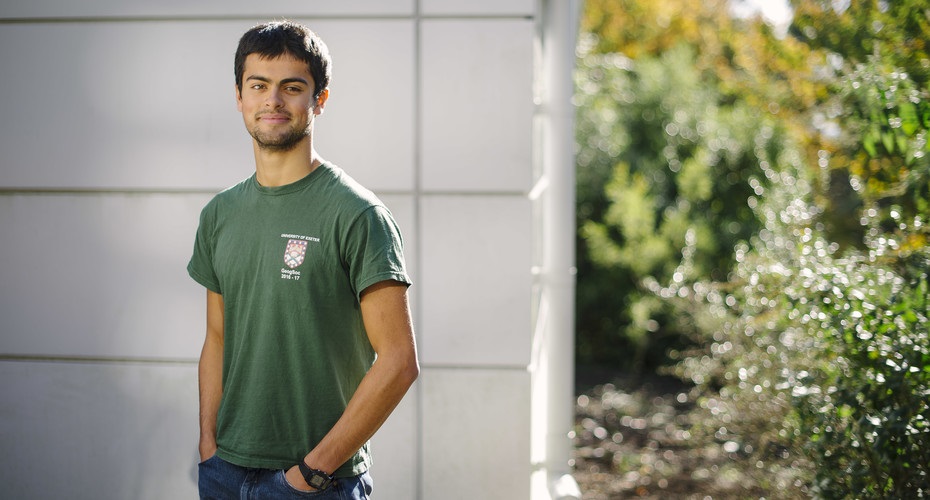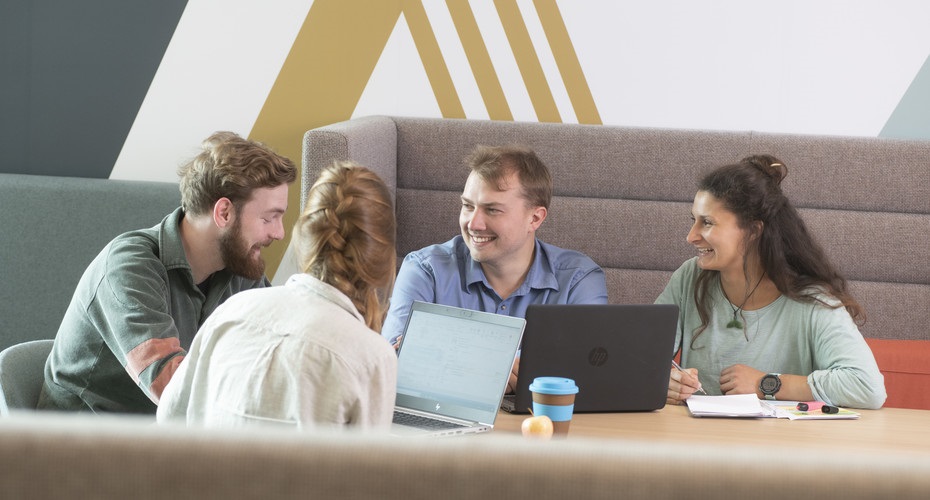| Degrees |
MPhil/PhD/MSc by Research Sport and Health Sciences |
|---|---|
| Duration |
| Start date | September, January or April |
|---|---|
| Location | St Luke's Campus |
| Study modes | Full time and part time |
Overview
Our research is broadly established around the following topics:
- Physical Activity and Health Across the Lifespan
- Human Movement Science
- Integrative Physiology
- Food and Nutrition
- Children's Health and Exercise
16th in the world for Sports-related subjects
QS World University Subject Rankings 2022
6th in the UK for Sports Science
The Times and Sunday Times Good University Guide 2022
1st in the UK for world-leading research
Research Excellence Framework 2021 based on 4* research submitted to UoA24 Sport and Exercise Sciences, Leisure and Tourism
Research overview
Sport and Health Sciences at the University of Exeter has a long-standing and international reputation for leading research in the field. Our world-renowned academics are recognised for their groundbreaking and innovative work within the academic community, and are also highly sought after by leading sports professionals and teams.
Our friendly, intimate academic community provides a truly supportive environment for our staff and students that fosters a vibrant research culture. We are continually evolving to ensure we remain at the forefront of pioneering research areas, but without losing the inclusive atmosphere that allows our academics to truly flourish. We have also enhanced our academic team with additional research staff who are distinguished worldwide for their studies.
We attract significant funding from UK Research Councils (including MRC, EPSRC, ESRC, and Royal Society), The National Institute of Health Research (Health Technology Assessment) the commercial sector (including Glaxo Smith-Kline, Unilever and Kellogg’s); and from sporting bodies (including UK Sport, UK Athletics, Manchester United Football Club and the Rugby Football Union).
Our research students have:
- presented their work to international conferences and published in peer-reviewed journals prior to graduation;
- won numerous international and national awards for research excellence;
- all moved into full-time employment on graduation;
- work in universities all over the UK as well as in Australia, Hong Kong, Malaysia, Mexico, Portugal, Singapore and the USA.
How to apply
Normally a strong background in the field of study at undergraduate level or an MSc in a related subject that would underpin the knowledge required to conduct independent research as an MPhil/PhD student. This would usually require a good 2:1 BSc degree for UK students.
Start date
You can start in September, January or April but we strongly encourage a you to enrol in Term 1 in September as induction events are focused around this start date. However, we do permit MSc by Research/MPhil/PhD students to enrol either at the start of Term 1, Term 2 or Term 3 (see the University's term dates), or on the 1st of any other month except August, September and October.
Requirements for international students
If you are an international student, please visit our international equivalency pages to enable you to see if your existing academic qualifications meet our entry requirements.
English language requirements
International students need to show they have the required level of English language to study this course. The required test scores for this course fall under Profile B2: view the required test scores and equivalencies from your country.
Fees and funding
Tuition fees per year 2024/25
- Home: £4,900 full-time; £pro-rata part-time
- International: £27,500 full-time
For those studying for more than one year, our fees are expected to increase modestly in line with Consumer Price Inflation measured in December each year. More information can be found on our Student Finance webpages.
Tuition fees per year 2023/24
- Home: £4,712 full-time; £pro-rata part-time
- International: £25,000 full-time
For those studying for more than one year, our fees are expected to increase modestly in line with Consumer Price Inflation measured in December each year. More information can be found on our Student Finance webpages.
Tuition fees per year 2022/23
- Home: £4,596 full-time; £pro-rata part-time
- International: £23,000 full-time
For those studying for more than one year, our fees are expected to increase modestly in line with Consumer Price Inflation measured in December each year. More information can be found on our Student Finance webpages.
Current available funding
Supervision
You can expect:
- High-quality research supervision to develop and nurture your potential
- A tailored supervision approach to help best suit your requirements
- Accessible supervisors who are enthusiastic about working directly with postgraduate research students
- Regular timetabled meetings with your supervisor
- 'Open door' policy to all postgraduate students - instant access to world-leading researchers who will share their expertise and ideas with you
- Regular meetings with your supervisory team, other members of your research group, and mentors
Facilities
Located on the historic St Luke's Campus, Sport and Health Sciences at Exeter occupies three buildings: the Richards Building, Haighton and Baring Court. Each building houses several teaching and research laboratories, and computer suites.
Teaching labs
The teaching labs are predominantly used for practical classes and individual data collection activities for dissertations and are equipped with: Lode cycle ergometers, Monark cycle ergometers, Biodex isokinetic dynamometer, Woodway treadmills, Non-motorised treadmill, Cortex on-line gas analyser, Capillary blood sampling analysers used in exercise testing, Bioelectrical impedance analysers for body composition analysis, Anthropometrical equipment, ECG analysers and blood pressure monitors.
Exercise physiology
The exercise physiology labs include: exercise physiology, blood analysis, DEXA, body composition, vascular physiology, MRI simulation, muscle strength laboratory, magnetic resonance centre, magnetic stimulation Unit, biomechanics laboratories, psychology laboratories.
Biomechanics laboratories
Biomechanics research aims to improve our understanding of injury mechanisms of the lower limb, identifying ways to reduce the incidence of injury and aid rehabilitation. The School has three biomechanics laboratories; two for motion analysis and one a dedicated gait analysis lab.
Psychology laboratories
The psychology laboratories contain treadmills, cardiorespiratory monitoring equipment, cycle ergometers and computers. Simulated sports performance environments for activities such as basketball and golf enable the study of 'visuomotor control and learning' using sophisticated eye-tracking technology.
Sports facilities
There are extensive sports facilities across both the St Luke's and Streatham campuses. Visit the University Sports website for full details.











